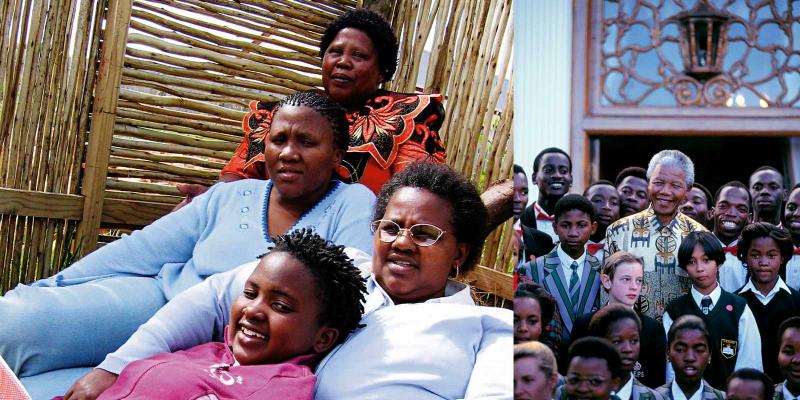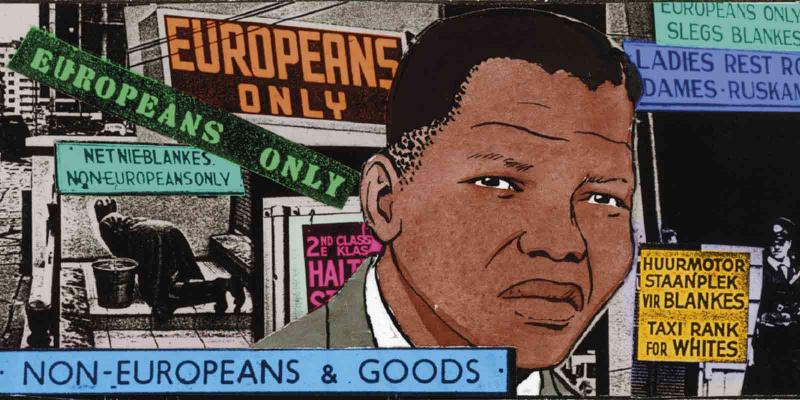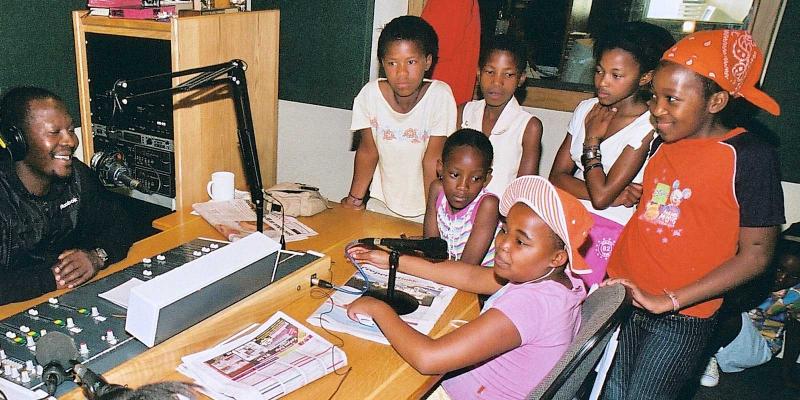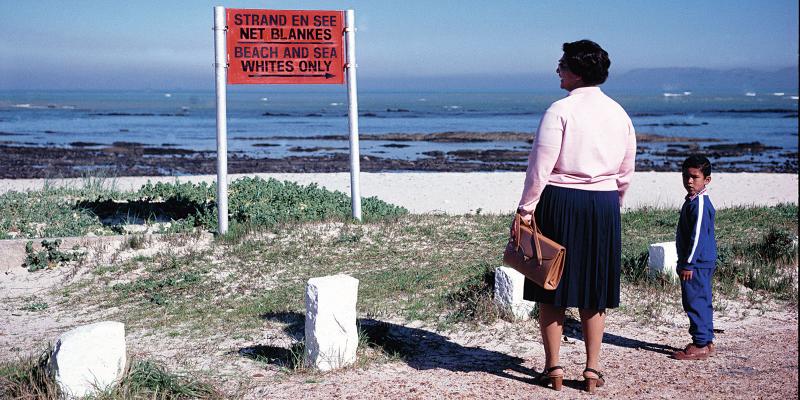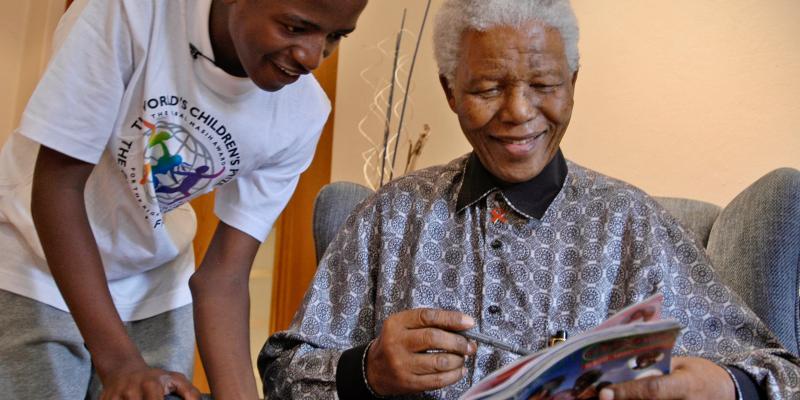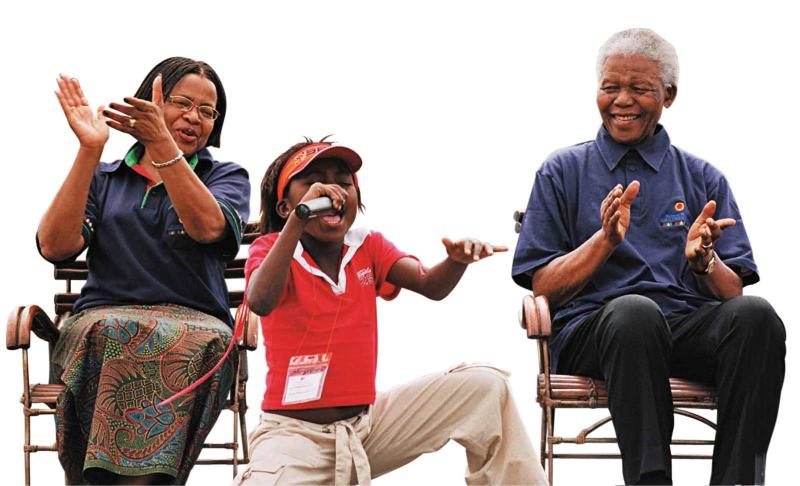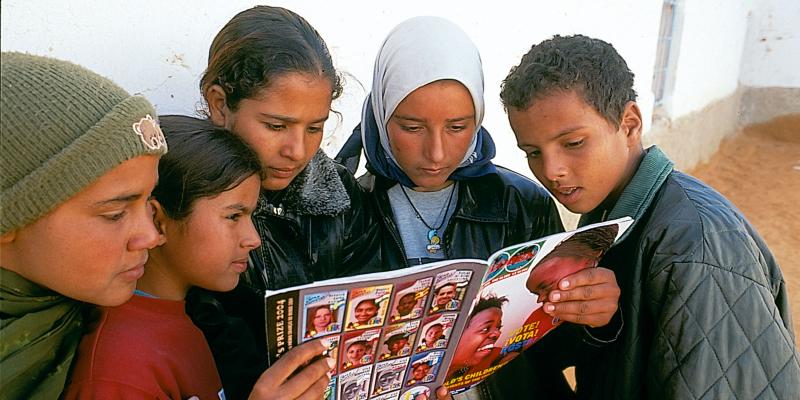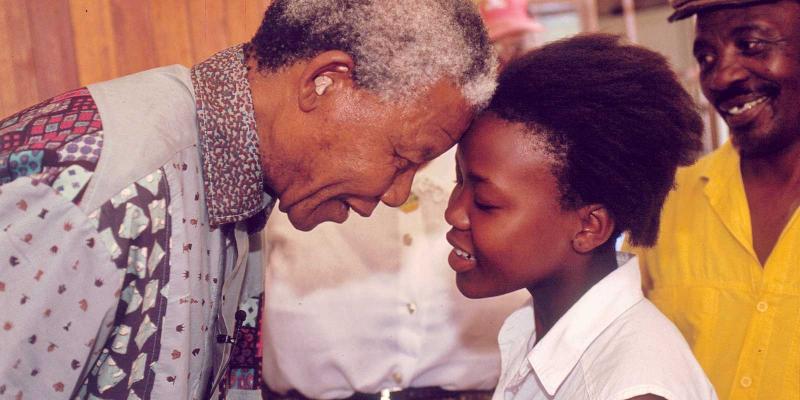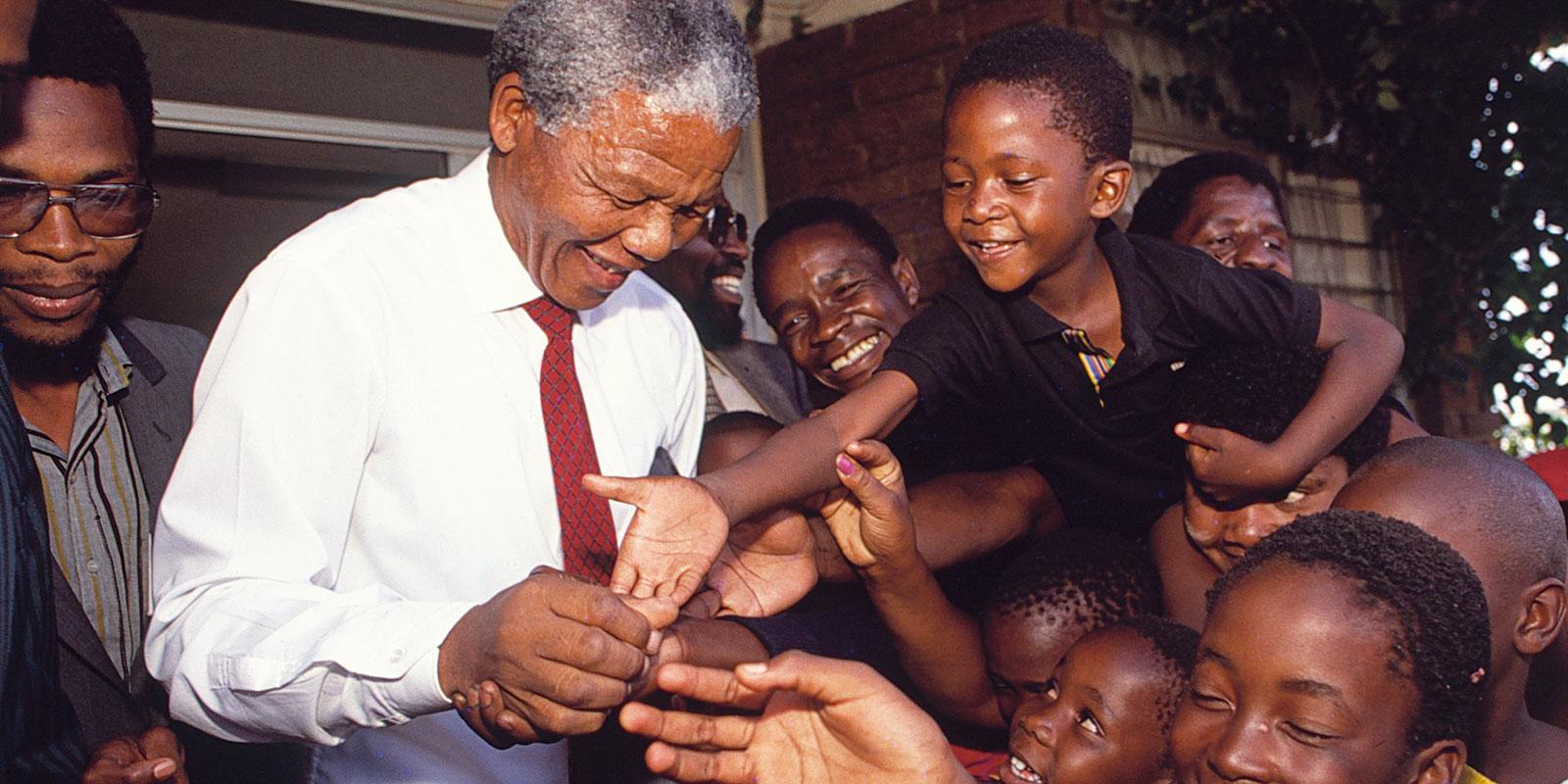
Nelson Mandela grew up in poverty. His father died and he went to live with his uncle who wanted to marry him off to one of the village girls.
But Nelson had other plans. He ran away to the big city of Johannesburg and it was there that he came into contact with apartheid, which means 'apartness'. Blacks were separated from the whites and they were treated badly and unfairly. Nelson hated injustice and could not accept the way that people were treated differently because of the colour of their skin. He didn't want his children – or any South African children – to grow up with apartheid. He said that he was prepared to die to give the children a better future. His struggle against apartheid and for the freedom of South Africa's children cost him 27 years in prison.
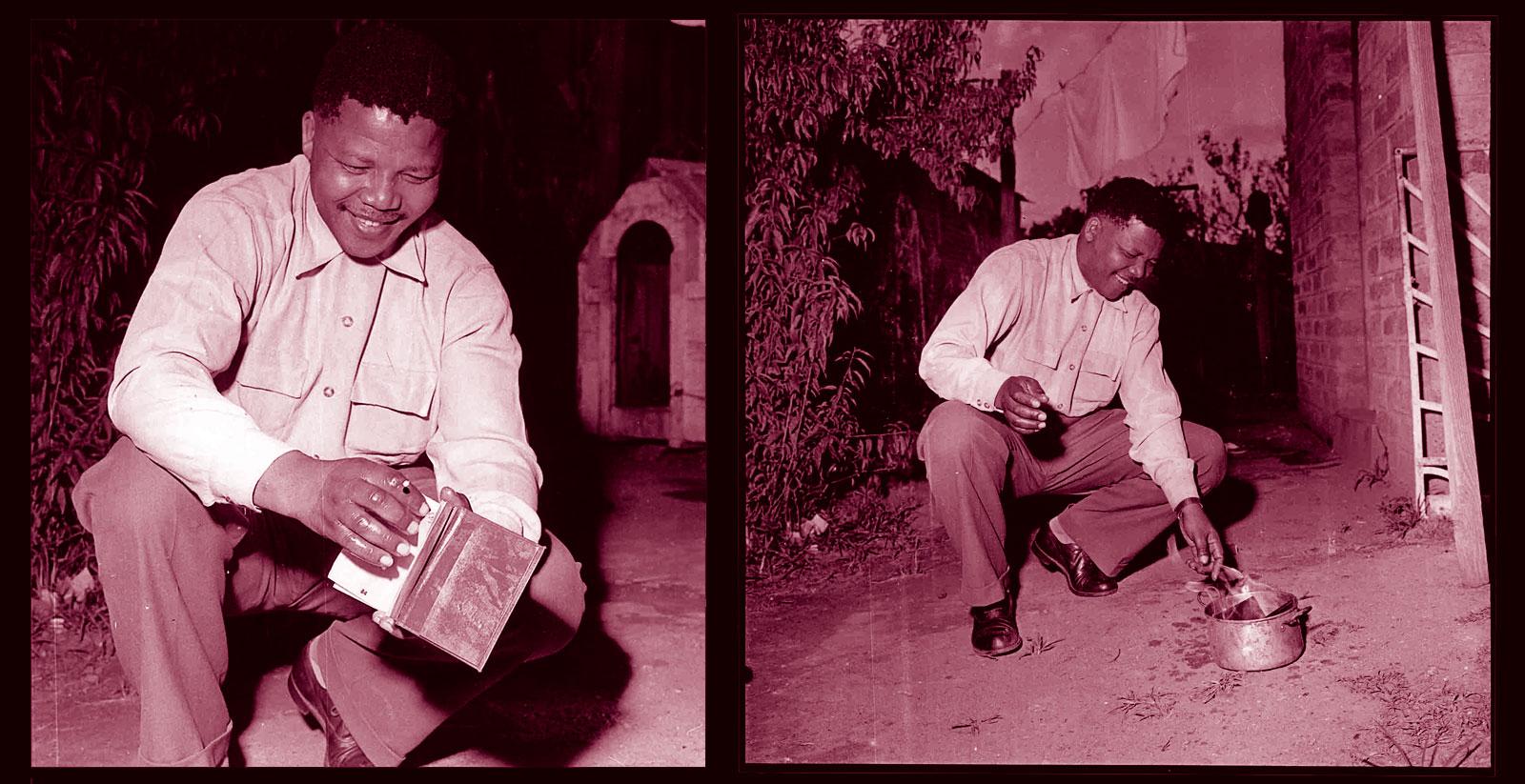
During his fight against apartheid, Nelson Mandela burnt his passport, issued by the racist regime.
Finally released
Nelson was 72 when he was released. But despite being so badly treated, he did not want to take revenge on those responsible for apartheid. He wanted blacks and whites to live in harmony and to build a better future together. On receiving the 1993 Nobel Peace Prize, Nelson said:"South Africa's children shall play in the open veldt, no longer tortured by hunger or disease or threatened with abuse. Children are our greatest treasure."
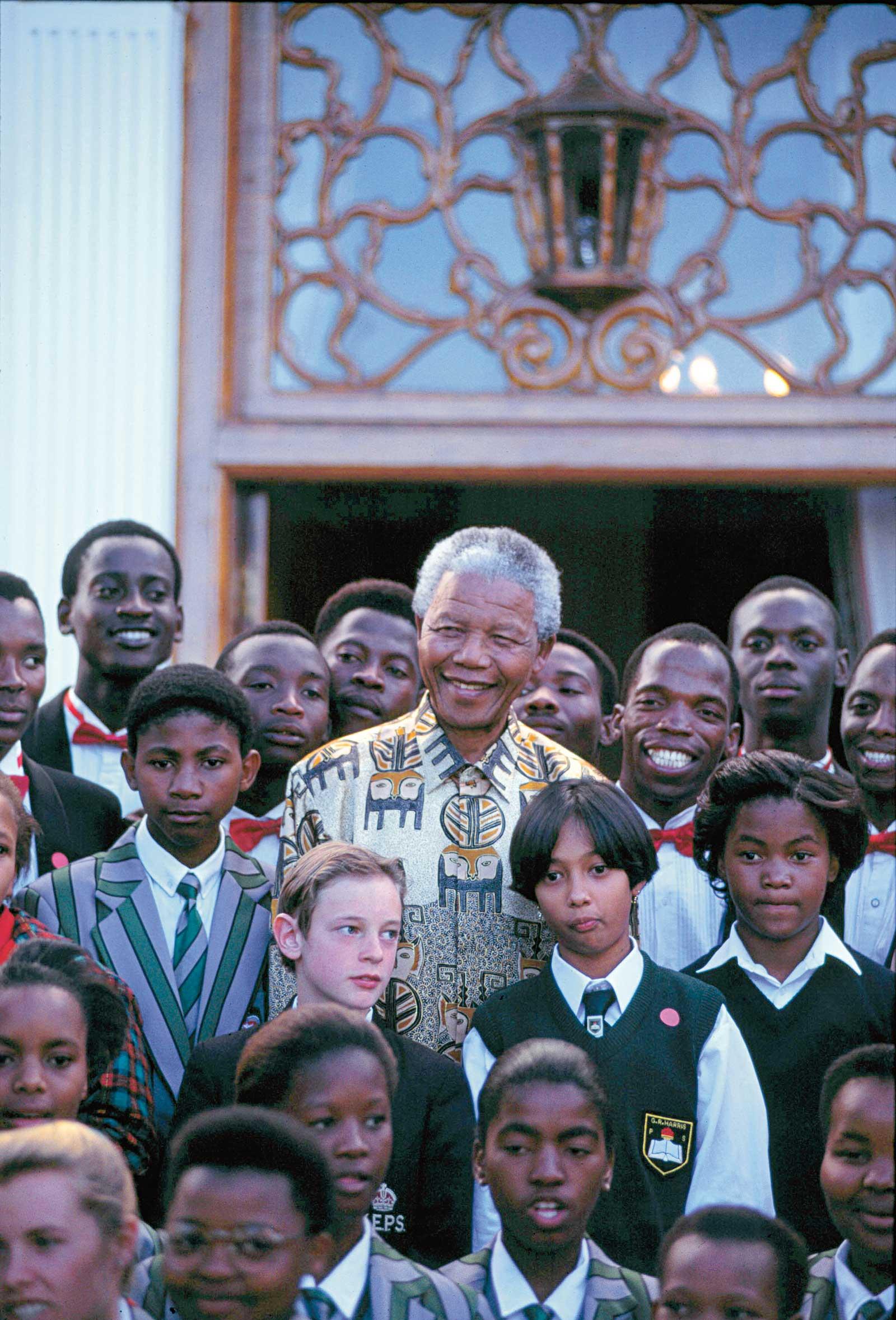
Nelson Mandela became president of South Africa in 1994. He made sure that all the unfair laws were abolished. Today, black and white children can be friends and they all have equal rights.
Kept helping children
As president Nelson Mandela donated half his salary to poor children and when he got the Nobel Peace Prize he gave part of the prize money to help street children.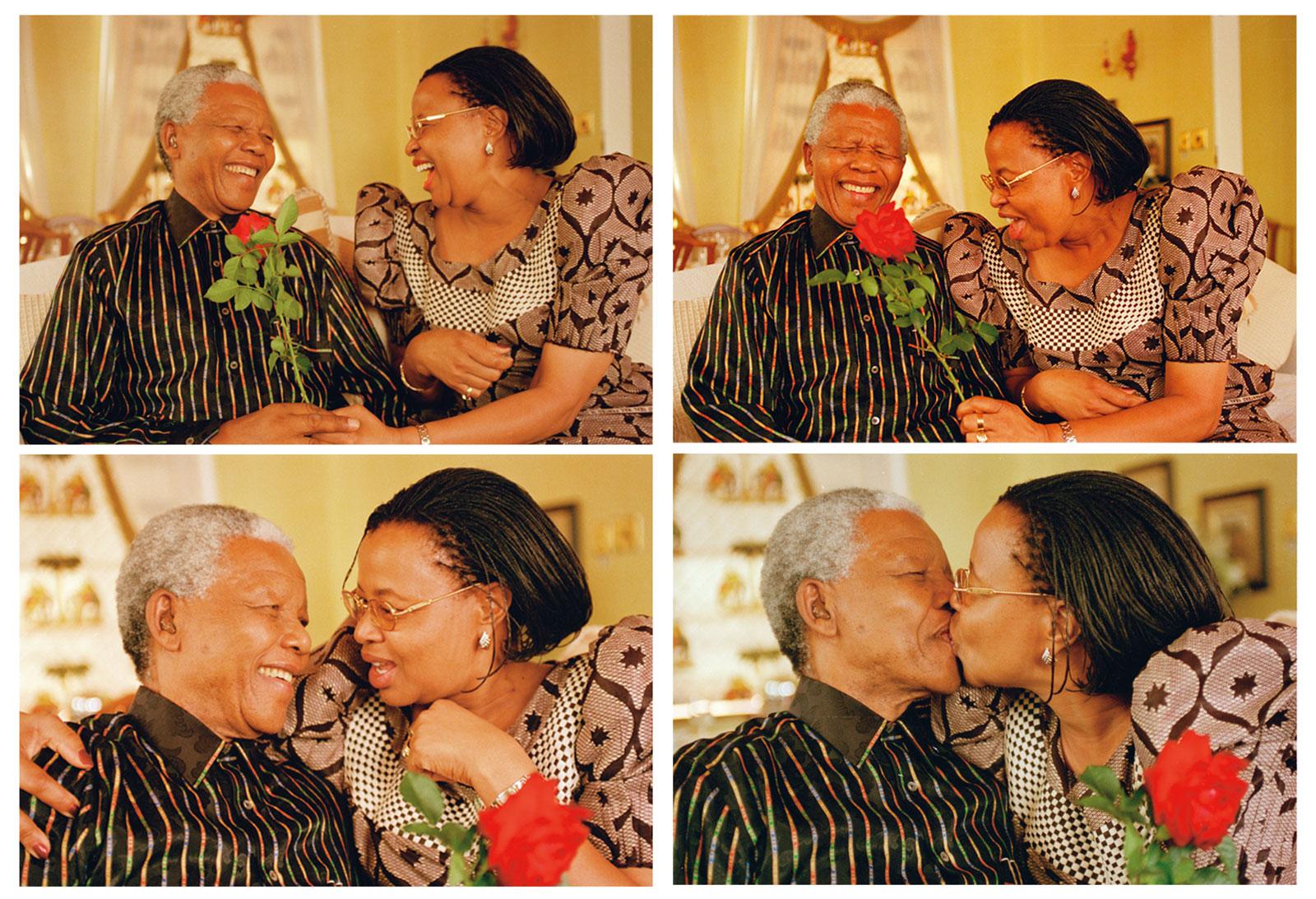
Nelson Mandela and his wife Graça Machel, at the time that they were awarded the World’s Children’s Prize.
A recharged battery!
Later, after Nelson Mandela had retired, he kept supporting children in need. He said his dealings with children and young people gave him energy. "Whenever I'm with vibrant young people, I feel like a recharged battery," he said.Text: Annika Forsberg Langa
Photo: Louise Gubb
Related stories
Långgatan 13, 647 30, Mariefred, Sweden
Phone: +46-159-129 00 • info@worldschildrensprize.org
© 2020 World’s Children’s Prize Foundation. All rights reserved. WORLD'S CHILDREN'S PRIZE®, the Foundation's logo, WORLD'S CHILDREN'S PRIZE FOR THE RIGHTS OF THE CHILD®, WORLD'S CHILDREN'S PARLIAMENT®, WORLD'S CHILDREN'S OMBUDSMAN®, WORLD'S CHILDREN'S PRESS CONFERENCE® and YOU ME EQUAL RIGHTS are service marks of the Foundation.



